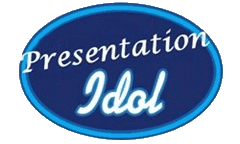
In a couple of weeks, I‘m participating in an internal “Presentation Idol”competition. It’s a contest of presentation skills against impressive competition (I can’t name names, but rest assured it’s a strong group) being judged by Microsoft executives (again, I can’t name names, but this time it’s because I don’t know who’s judging) in front of what I assume will be a large technical internal Microsoft audience. To top it off, we each only get three minutes and thirty three seconds each to deliver our presentations.
So yeah, no pressure.
The topic we’re all presenting is “What is the one thing we should do to improve Microsoft?” For those who know me, it should come as little surprise that I picked a variant of “more open source” for my presentation. More specifically, I’m planning to present the following:
- Any product Microsoft gives away for free should also be Open Source.
- Open Source Microsoft products should accept contributions from the community.
I realize that many people consider this separation between “source availability” and “community contributions” completely artificial. Sure, the accepted definition of Open Source only addresses the availability and distribution of source code, but most Open Source advocates consider the ability to collaborate and contribute – what Wikipedia calls “Commons-based peer production” – a critical aspect of Open Source. For example, with respect to the announcement that ASP.NET MVC would be released under the Ms-PL, Keith Elder tweeted:
“Giving someone your source code is NOT open source. So although Asp.Net MVC’s source code is out there for download, not open source.”
In what now seems like a huge coincidence, Keith and his co-host Chris “Woody” Woodruff interviewed me later that day for their podcast Deep Fried Bytes. As you might imagine, while we started with talking about IronPython, we eventually started discussing open source at Microsoft more generally. It was a great conversation, and we found lots of common ground.
Personally, I think Microsoft is making small steps in the right direction when it comes to Open Source. Not only have some high profile Microsoft projects go Open Source like ASP.NET MVC and MEF, but we’ve even started taking baby steps for including external intellectual property. Releasing ASP.NET MVC under Ms-PL is a big deal, but I think including jQuery “in the box” is a much, much bigger deal. It remains to be seen if it’s a one-time-only deal or if it’s a new trend inside Microsoft.
Obviously, I hope it’s a trend. Going from “include jQuery in ASP.NET” to “accept community contributions in ASP.NET” seems like a relatively achievable goal.
Now, here’s where I need your help.
I can easily fill three and a half minutes talking about Open Source community collaboration. But since my presentation is about taking contributions from the community, I decided to put my money where my mouth is and crowdsource it:
What is the elevator pitch *you* would make for including community contributions in Microsoft Open Source products?
Leave me a comment, send me an email, tweet it, whatever – I’ll be keeping an eye out for responses. Please remember that I only have three and a half minutes to present, so keep your ideas short and sweet.

